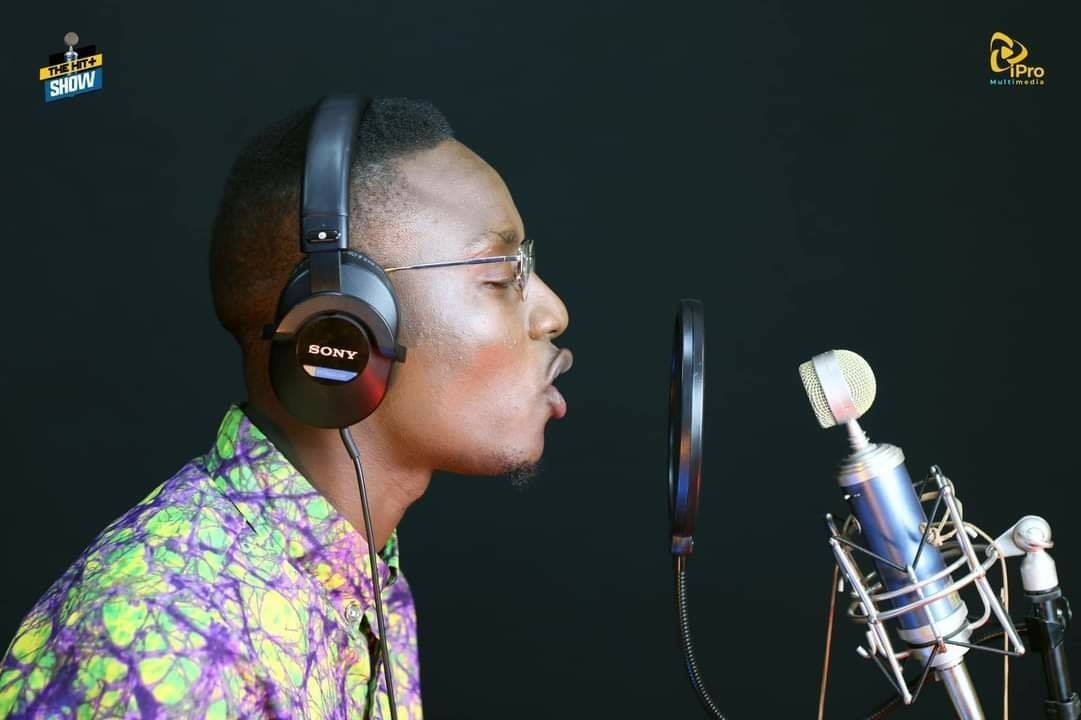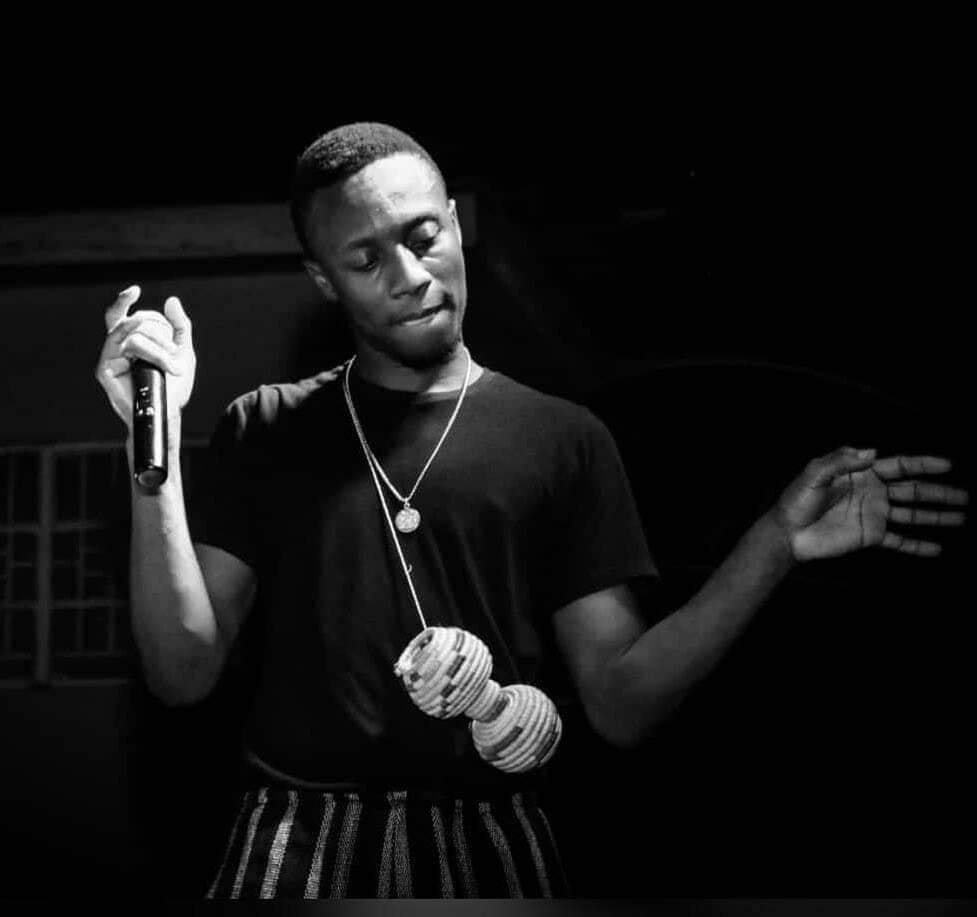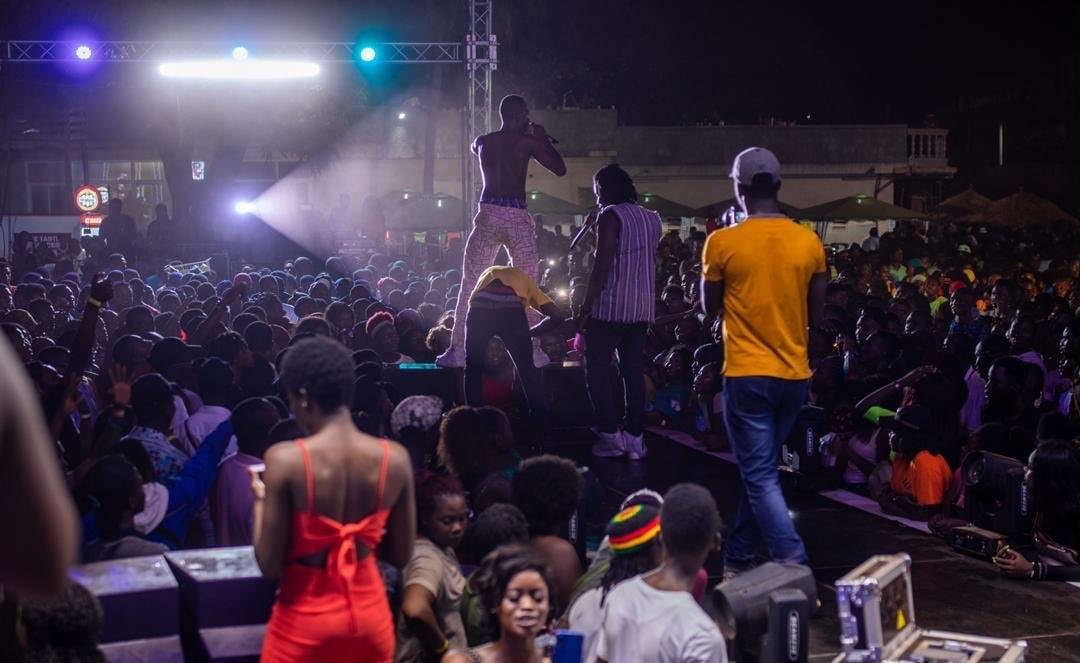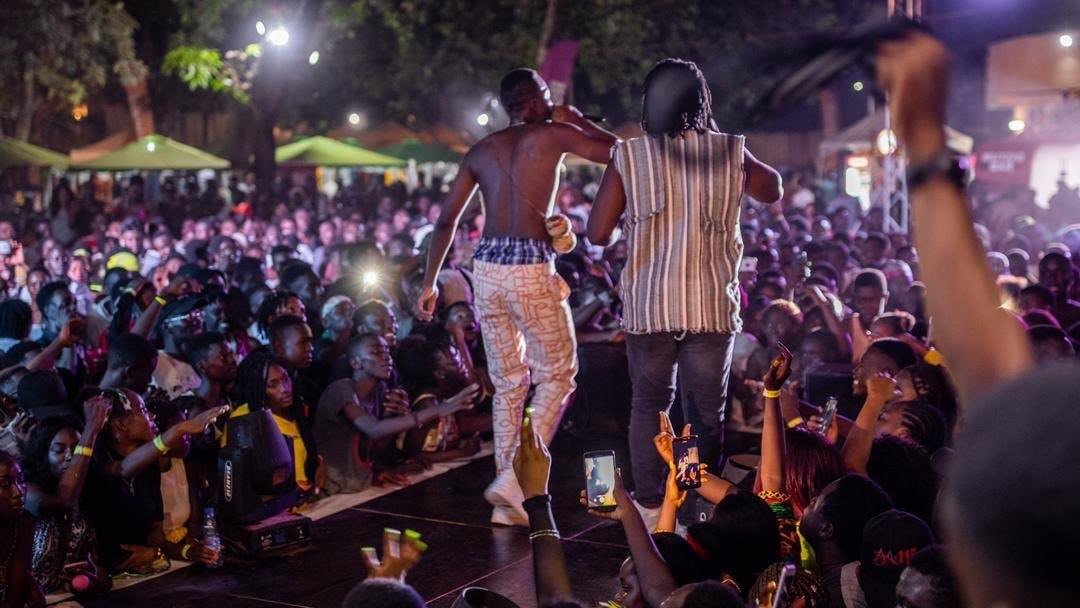Freetown’s Breakout Music Star
With over 12 million streams, two critically acclaimed albums, and sold out concerts, Drizilik is the breakout star of Freetown’s Krio Fusion music revival. He blends Sierra Leonean goombay, bubu, with hip-hop and afrobeats. His skillful songwriting, catchy one-liners, and deep cultural metaphors on his 10-track Album of the Year winning Shukubly record, earned him the moniker of Sierra Leone’s king of new school music. Drizilik’s range and inimitable delivery both as a rapper and singer have led to back-to-back hit singles and collaborations including ‘Shukubly’, ‘Move Right’ with BAFTA winner Big Zuu, and the grimey classic ‘Di Mammy Im Moni Fo Komot’. The 2021 MTV Africa Music Award 'Listener's Choice' Nominee has rocked stages from Freetown, Lagos, to London; including Madengn Festival, Fashion Week for Labrum, Youtube’s Africa Day Concert, Sierra Leone & Gambia Music Festival, and Hull City’s Freedom Festival.

Benjamin Menelik George was born in 1994 to a Krio family in Freetown. For the first ten years of his life, the city experienced coup d’état, bombings, and saw an influx of internally displaced people fleeing Sierra Leone’s conflict. His family tried to protect him from the dangers on the street but he and his band of Wellington Street friends found solace in each other. During holidays they played video games and checked for the latest music hits on MTV Base. When he discovered hip hop in high school, he realised that music could be an outlet. He filled his notebooks with verses about the highs, and lows of growing up in the Shukubly—centuries-old Krio basket —and his nickname for Freetown.
The Early Years
When Drake released Thank Me Later in 2010, he was inspired to write music. He admired Drake’s versatility; he could sing, rap, and use simple lyrics to convey double entendres. But most of all he drew inspiration from Drake’s personal story. He didn’t have to be from the hood or put on a gangster persona to be a hip-hop artist.
Amongst his friends on Wellington Street, Benjamin was “the soft one”. His grandparents were strict and he wasn’t one to break their rules.
“We used to play football on the street. Our parents didn't like it. While my friends could disobey, I wouldn’t dare. So they would tease me for being soft. As soon as my Grandpa John would stand on our veranda and yell my name: “Benjamin!” That's it. I’m going in.”
His friends started to call him “Driz”, a nickname for Drake. He put Driz and his middle name Menelik together and Drizilik was born.
He was so passionate about music that his Grandma Laura noticed. She wanted Drizilik to follow a more traditional path but her grandson had other plans.
To produce his first mixtape he had no money to hire a producer or book studio time. Drizilik turned to the world’s DIY free university—YouTube. As luck would have it, a friend got a laptop. Drizilik spent weeks watching how-to-videos about recording and publishing music. Five months later, he had written, recorded, and released Two Fingers Up Vol. 1 & 2, his first mixtape.
That same year, DJ Rampage, a triple-threat Instrumentalist, producer, and disc jockey, saw him perform live at an amateur night at Alafia Point. Rampage was with Ballanta Academy of Music’s bandleader and convinced him to invite Drizilik to perform at their annual Christmas Festival. The academy is the foundation of the city’s modern music scene. Drizilik practiced with other emerging talents like Block Jones, Rozzy, Solos Beats, and the instrumentalists who would later form The Freetown Uncut Band.
“The band played mostly reggae and afrobeats. So to create room for me I had to evolve. I learned to fuse hip-hop which was my comfort zone with their style. It made me a better artist.
Joining Ballanta came with other rewards. Grandma Laura gave her blessings for Drizilik to pursue a career in music. She thought he was formerly studying music at the Academy’s school. He wasn’t. Drizilik was on stage practicing perfect showmanship.









Breaking Out On His Own
Over the next three years, Drizilik released four mixtapes including the Best Flow Possible. Performing songs on that mixtapes brought new opportunities. He appeared on the Kalleone Radio Rap Cypher and performed at the annual Deflosacs Fashion Show.
Drizilik got another big break when British investor Tom Cairnes founded the Freetown Uncut Band with artist friends from Ballanta. While he was no longer performing at the academy and not a band member, they gave him room to grow. Drizilik experimented with Bubu, Milo Jazz, and Afrobeats with the band. For the first time in his career, he had an environment where he could practice live music and record in a studio. In the year he was a resident artist with the Freetown Uncut Band, Drizilik emerged as a true frontman.
In 2016 he released his fifth mixtape, Ben Ten Over Ten. Drizilik was eager for a hit, and he knew the only way to breakthrough was to take the music to the streets. He and Block Jones, who had just released the song Chinese, took their songs on CDs to the annual Tangains Festival at the national stadium. For three straight days, they stopped at every bar and kiosk with a speaker. At each spot, they bought a drink, and wherever they drank, they left their song. When he returned to the stadium a week later, his efforts had not been in vain. The bars played the same three songs; Prodigy’s Azam Ba, Yung Sal’s Kam Join Wi Bo, and Drizilik’s Pop Collar.
“I knew I hadn’t made it yet but when I returned to those bars and heard my song I was like finally! I was standing right there, people were listening to my song and they didn’t know who I was.”

Still frame from the music video for Popular featuring Ramoni. Popular was released in March 2022, it is the second single from Drizilik’s sophomore album Ashobi.
The New School Crowns A King
After Pop Collar, the next single Di Mami Im Money For Komot shot on the gritty streets of Kroo Town Road Market was a bonafide hit. Released in March 2017, it made Drizilik a household name and won the best hip hop song at Sierra Leone Elite DJ Union (SLeDu) Awards.
With multiple hits, music videos, five mixtapes, and collaborations with other emerging artists under his belt Drizilik had arrived.
In December 2018, he released his ten-track debut album Shukubly incorporating his culture into his personal style. In the place of a blinged out Jesus piece—his chosen fashion accessory was two small shukubly baskets on a string—an ode to his Krio heritage.
The album was a creative collaboration with DJ Rampage and various members of the Freetown Uncut Band. It had hits like the title track Shukubly, Yu Fil Se Na Fulish, Kɔna Yai, Posin, Aw fo Du, and This Is Sierra Leone, a cover of Childish Gambino’s This Is America. Shukubly was a major success. He won Album of the Year, Best Afro Hip Hop Artiste of The Year, Male Artist of the Year, and Best Live Performer at the 2019 National Entertainment awards. He also won the artist of the year award from All Works of Life (AWOL).
New Music on The Horizon
Drizilik’s sophomore album is Ashobi(aso-ebi)—a Krio word with Yoruba origins that means to wear the same clothes in unity. The 14-song album which is set for a July 2022 release date is about life beyond the Shukubly, a fusion of Sierra Leonean percussions, goombay, and bubu with afrobeats and baile funk. For this international West African community celebration, the musical sensation worked with an all-star cast of producers including Altra Nova in Accra, Nigerian hitmaker Masterkraft in Lagos, DJ Rampage and other Sierra Leonean producers in Freetown. The title track Ashobi which samples the signature accordion tune of the legendary Salia Koroma and Dr. Oloh’s mouth organ also features Hollywood leading man, producer, and international DJ, Idris Elba.
“I’ve come a long way from scrounging to stream how-to-videos on YouTube. I’ve gotten acclaim at home and my family is proud. My dream is to use music to uplift and celebrate Sierra Leone’s culture on a global stage. We have been through a lot. It’s time for Salone to shine.”
— Drizilik

